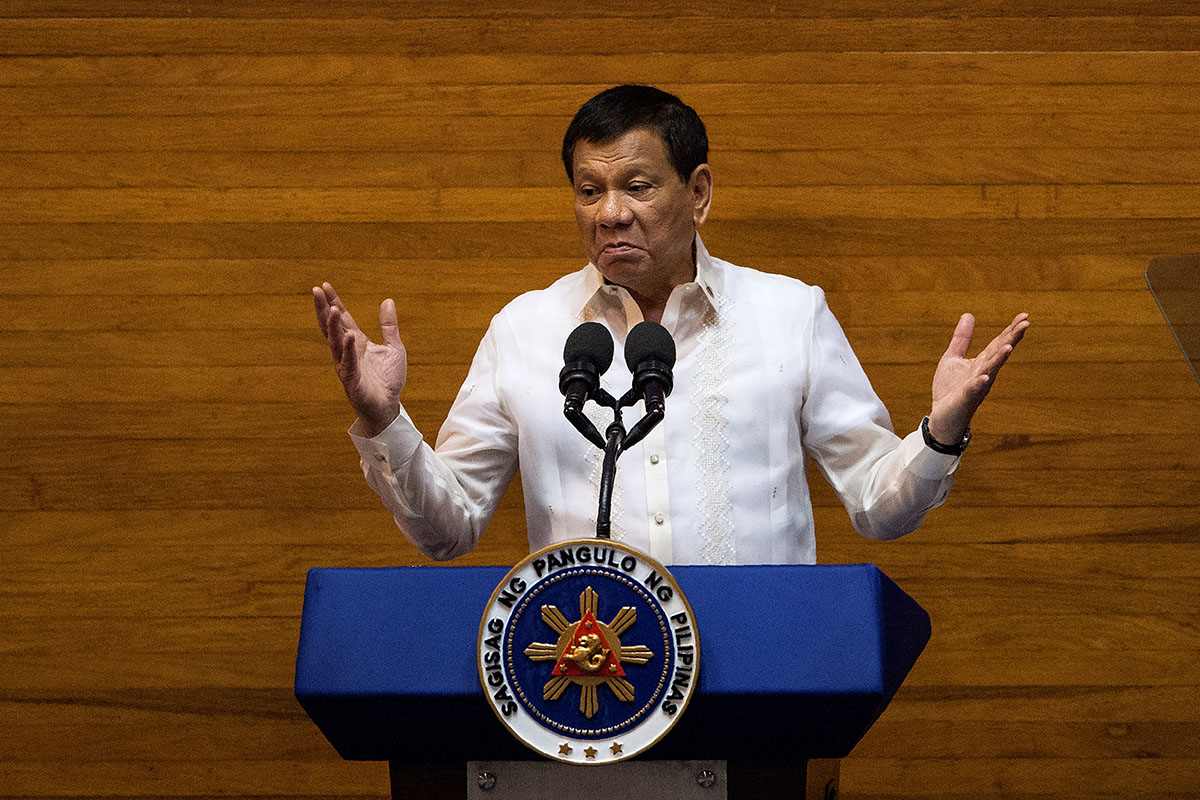Take 7,100 islands, add 100 million people, throw in a twist of corruption, an unhealthy slug of poverty and a dab of dynastic politics, and what do you get? A recipe for disaster, you might think. And yet the Philippines has been simmering nicely enough as a developing democracy since the overthrow of the dictator Ferdinand Marcos in 1986. Recent years have been marked by relative stability and economic growth that’s outpaced most of Southeast Asia. But the Philippines veered onto another course in 2016 as dissatisfied voters turned to Rodrigo Duterte, a fiery populist who has since waged a deadly war on drugs and, in a chilling throwback to the Marcos era, threatened to impose martial law on the country.
The Situation
More than a year after his landslide victory, Duterte has lived up to his tough-man image, and some. The Philippine president's anti-drugs campaign has, according to critics, claimed more than 7,000 lives – many by vigilantes – and resulted in human rights abuses. In May, Duterte put the southern island of Mindanao under martial law, responding to violence involving militants linked to Islamic State, and talked about extending military rule to the entire nation. While the former Davao City mayor was elected on an anti-corruption platform, Duterte and his family find themselves subject to an official investigation over bank transactions equivalent to about 19 million dollars. Duterte denies any wrongdoing and says he'll quit if he or any family member is found guilty of corruption. In September, his son Paolo, vice mayor of Davao City, denied involvement in a high-profile drug-smuggling case. His father threatened to have him killed by police if he was proven to be a drug trafficker. Duterte does not take kindly to criticism and has issued expletive-laden or crude ripostes to the Pope, the European Union and former US President Barack Obama, while threatening to withdraw the Philippines from the United Nations. He has shifted his nation closer to China and Russia and away from the US, its major military ally since the 1950s, though in Donald Trump he has found a more supportive US president than Obama. While Duterte, 72, has so far maintained strong public approval, surveys show Filipinos support the goals of his anti-drugs campaign more than its methods. His harshest critic, Senator Leila de Lima, was jailed in what she said was a politically motivated move. Duterte has threatened to investigate the official who is leading the probe into his family's finances.
The Background
After centuries of Spanish and US rule, the Philippines finally got to determine its own fate as the conclusion of World War II ended Japanese occupation. Its democracy has become splintered, with multiple parties competing in a political climate focused on personalities and dominated by powerful dynasties. Benigno Aquino, Duterte's predecessor, is the son of former President Corazon Aquino, whose People Power Revolution ended Marcos’s 21-year rule. The Marcos era was marked by brutality – an estimated 3,000 people were killed and 35,000 tortured – and by extravagance epitomised by his wife Imelda’s shoe collection and a 25 million dollars stash of artwork. It also left a legacy of widespread corruption. Even so, the economy began to build momentum in the 2000s, with the World Bank praising the Philippines as Asia’s “rising tiger” in 2013 as the country earned its first-ever investment-grade credit rating. Duterte has vowed to continue the investment-heavy economic policies of Aquino, who was prevented from seeking re-election by a one-term limit on presidents imposed after Marcos’s reign. Even with the economic gains, more than a fifth of the population remains in poverty, partly because of regular natural disasters including the devastating Typhoon Haiyan in 2013.
The Argument
Duterte’s critics see him as possibly the biggest menace since Ferdinand Marcos and a threat to democracy itself. On the international stage, Duterte has upended his country's strategic alliance with the US, saying it was "time to say goodbye" to America and that foreign policy now "veers towards" China. The Philippines is now considering ways to jointly develop oil and gas resources with China in a disputed part of the South China Sea – an approach that contrasts with Aquino’s move to take the case to an international tribunal (which the Philippines won). The presidency of Trump may open the way for warmer ties with the US than under Obama, whom Duterte once told to "go to hell." Other challenges for the president include Manila’s gridlocked traffic, which Duterte promises to solve with a promise of a ″golden age” of infrastructure; underemployment that puts 16 percent of workers with advanced degrees in low-skill jobs; and the migration of educated Filipinos overseas. – AFP
